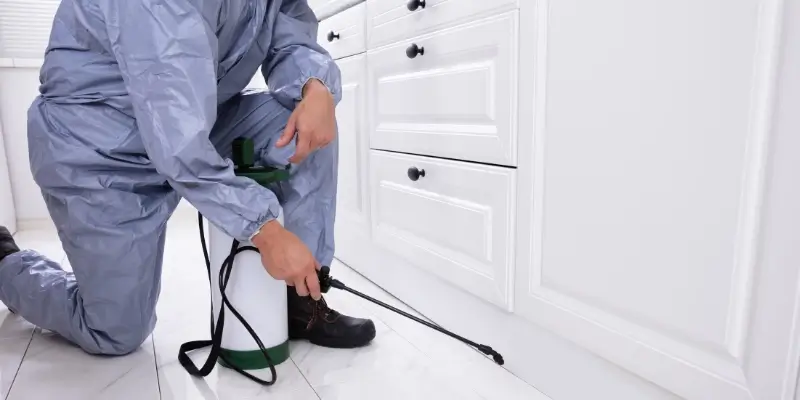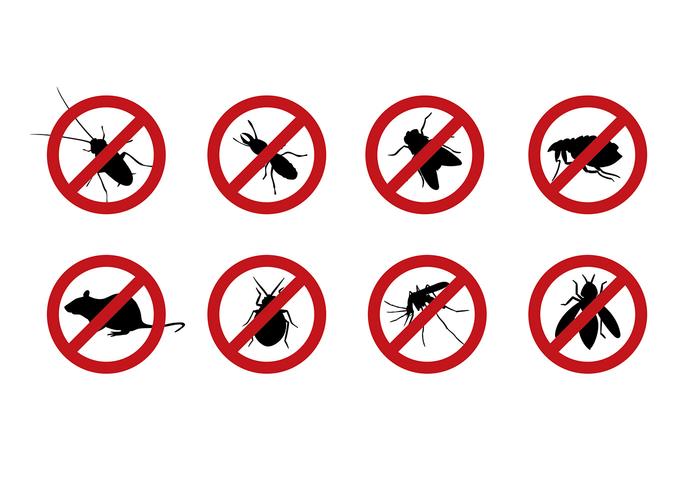Affordable Rat Control Coquitlam Services to Keep Your Home Safe
Affordable Rat Control Coquitlam Services to Keep Your Home Safe
Blog Article
Safe and Trusted Pest Control for Lasting Protection
Efficient pest monitoring needs a multifaceted strategy that stabilizes ecological honesty with the demand for efficient insect suppression. The subtleties of these methods might not be promptly clear, triggering a closer examination of the techniques that can lead to sustainable pest control end results.
Comprehending Insect Control Methods
Parasite control incorporates a range of methods focused on handling and getting rid of undesirable pests and rodents that can threaten both health and residential property. Recognizing these methods is essential for effective bug management.
The main groups of pest control techniques consist of mechanical, organic, and chemical techniques. Mechanical approaches involve physical barriers and catches to protect against insect entrance and capture undesirable varieties. Making use of displays on home windows or employing sticky traps can considerably decrease bug populaces without presenting unsafe substances - exterminator coquitlam.

Chemical insect control is frequently the most identified method, making use of chemicals to get rid of insects. These chemicals can be efficient however should be used with caution to stay clear of damaging results on non-target types and the atmosphere.
Benefits of Eco-Friendly Solutions
How can eco-friendly solutions change parasite control methods? The adoption of green bug control methods uses various benefits, significantly improving the effectiveness and safety and security of bug management (exterminator coquitlam). To start with, these options utilize all-natural components, lowering the reliance on hazardous chemicals that can present risks to human health and wellness and the environment. This change not just safeguards pet dogs and families however additionally reduces the possibility for soil and water contamination.

An additional benefit is the favorable effect on local biodiversity. Eco-friendly services are developed to target particular insects while preserving useful bugs and wildlife, promoting a well balanced ecosystem. This method lines up with the growing customer need for sustainable techniques, boosting the online reputation of insect control companies.
Integrated Insect Management Methods
The application of green services normally results in the adoption of Integrated Bug Monitoring (IPM) methods, which even more boost parasite control efficacy. IPM is an alternative strategy that incorporates multiple tactics to manage bug populaces while reducing ecological influence. This approach highlights using biological, social, mechanical, and chemical controls, making sure a balanced and lasting method of insect management.
One essential facet of IPM is the comprehensive assessment of bug activity and ecological problems. By checking insect populaces and recognizing their life cycles, experts can implement targeted interventions that disrupt the pest's habitat or lifecycle, lowering reliance on chemical pesticides. Furthermore, cultural techniques such as crop rotation and habitat manipulation can considerably diminish pest facility and reproduction.
One more essential part is the usage of biological control agents, such a pest control as beneficial insects or bacteria, which can normally reduce pest populaces. When chemical applications are necessary, IPM focuses on using low-risk chemicals and uses them selectively, minimizing exposure to non-target microorganisms and humans.
Including IPM strategies not just boosts pest control effectiveness yet additionally promotes a more secure environment, aligning with the growing demand for lasting practices in bug monitoring.
Safe Practices for Homeowners
Comprehending the relevance of safe practices in pest control can equip home owners to properly handle pest problems while protecting their health and wellness and the environment. Implementing preventative measures and non-toxic approaches is critical in minimizing exposure to damaging chemicals.
Property owners must first analyze their environment for problems that bring in parasites, such as standing water, food, and mess waste. On a regular basis cleaning and securing entrance factors can deter insects from getting into the home. Making use of natural deterrents, such as crucial oils or diatomaceous earth, can supply reliable choices to chemical pesticides.
When chemical therapies are needed, house owners should choose items that are particularly identified as risk-free for residential use. It is vital to follow application standards carefully to stay clear of overexposure. Furthermore, utilizing targeted treatments in areas where pests are recognized, instead of covering spraying, can considerably lower chemical usage.
Finally, keeping open communication with bug control specialists is essential. House owners should make inquiries regarding the safety of products utilized and request environmentally friendly options whenever feasible. By embracing these secure practices, property owners can create a much healthier living setting while efficiently taking care of parasite concerns.

Tips for Long-Term Security
Establishing a pest administration method that stresses long-term defense can significantly boost the effectiveness of the secure practices previously reviewed. To achieve this, homeowners must carry out normal inspections of their residential property, concentrating on concealed areas such as attic rooms, cellars, and crawl areas. Early detection of pest activity is critical in preventing infestations from holding.
In addition, preserving a clean atmosphere is vital. This consists of correct food storage, promptly cleaning up spills, and consistently getting rid of trash. These practices reduce attractants that attract parasites right into the home. Furthermore, securing access points, such as cracks around doors and windows, can effectively block possible bug gain access to.
Landscape design needs to additionally be taken into consideration; maintaining plants trimmed and maintaining a range between greenery and the home reduces concealing spots for pests. Making use of all-natural deterrents, such as necessary oils or diatomaceous earth, can further dissuade invasions without considering severe chemicals.
Last but not least, collaborating with a specialist parasite control solution for periodic analyses can provide an extra layer of safety and security. These specialists can provide customized recommendations and progressed therapies, making sure that your home continues to be shielded versus insects in the long term.
Conclusion
To conclude, safe and dependable insect control calls for a multifaceted method that highlights eco-friendly techniques and incorporated parasite management. By applying natural deterrents, performing regular inspections, and keeping proper cleanliness, homeowner can dramatically reduce bug populations while protecting useful insects and the setting. Partnership with specialist pest control services enhances the efficiency of these strategies, yard pest control making sure customized services that offer long lasting security and comfort against future problems.
Efficient bug administration needs a complex strategy that stabilizes ecological honesty with the demand for reliable bug reductions. The adoption of environmentally friendly parasite control methods offers many benefits, considerably boosting the efficiency and safety of insect administration.The application of environmentally friendly solutions normally leads to the fostering of Integrated Parasite Administration (IPM) strategies, which further improve pest control effectiveness. exterminator coquitlam. By checking bug populaces and determining their arrow pest control life cycles, professionals can carry out targeted interventions that interfere with the parasite's habitat or lifecycle, lowering reliance on chemical pesticides.In final thought, dependable and risk-free insect control calls for a diverse approach that highlights environmentally friendly approaches and incorporated parasite management
Report this page